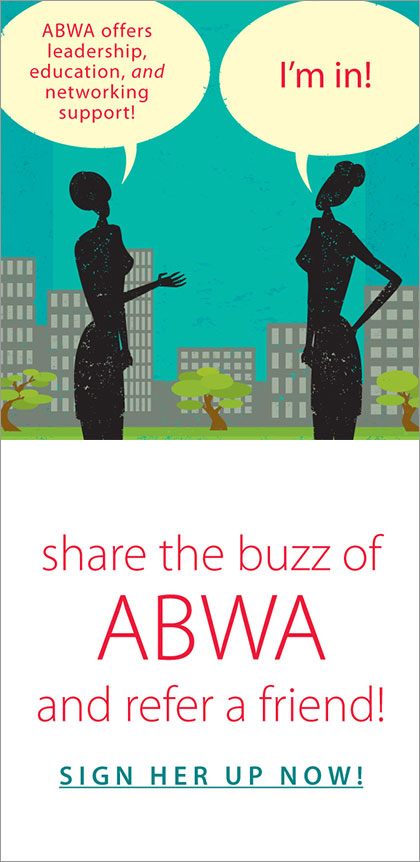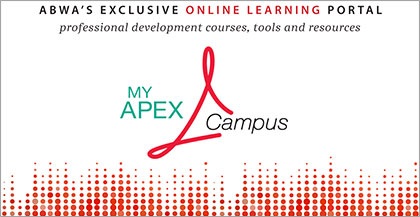
by Rene Street | Aug 22, 2024 | Uncategorized
Being present in today’s world is more difficult than it has ever been before. Everyone is constantly bombarded by emails, text messages, social media, news, advertisements, and all the other distractions of the modern world.
A lack of presence, especially in leadership, can often lead to poor communication, a lack of rapport with those around you, and volatility, uncertainty, confusion, and ambiguity in the workplace. One of the easiest ways to solve this problem is to understand and change the way you listen to those around you.
Most people don’t focus on or participate in listening in a way that actually makes a difference. Learning to truly listen and engage with whomever you are talking to enables connection, builds trust, and elevates flow across the board. When you strengthen your ability to listen, you become a better communicator. When you level up your ability to hear, you show up as somebody who is more open to feedback and who appreciates the contribution of what others are thinking and feeling. Upleveling your listening begins first and foremost with understanding what, how, and when you aren’t really listening.
Listening from Obligation
When this happens, there is little to no effort from the listener, either due to various distractions or a lack of caring about what the speaker has to say. Common behaviors when you’re listening at this level are multitasking, such as playing on your phone or scrolling through emails when someone is talking to you, tuning out/daydreaming, and anticipating what you think they are going to say and interjecting words for them. This kind of listening makes it impossible to develop rapport.
This level of listening also includes pretend listening, where you are not paying attention to the speaker, however you still act as though you are listening. The listener’s brain is paying attention to other things, but they are maintaining involvement in the conversation. Think of sitting next to someone very talkative on the plane or talking on the phone with a chatty family member. You aren’t absorbing or understanding the information the speaker is sharing.
Listening from the Inside
This is selective listening or downloading. In this level, you are only listening for what someone else is saying to confirm facts you already believe to be true. You are listening inside of your existing context. You parcel out information that you perceive to be uninteresting, lacking in value, or that doesn’t conform to your biases and preconceived notions. This level of listening is problematic because you only hear what you want to hear. When you listen this way, it’s all too often to brush feedback aside and/or filter it out altogether.
You know you’ve been listening like this when you come out of a conversation and everything you expected to happen happened. This type of listening is all about you. Your purpose in listening is to validate yourself and invalidate another if they disagree with you. There is no freedom and nothing new will be created in this kind of listening.
Listening for New Information
This level of listening is about seeking new information, new data, and new perspectives. It’s listening to learn. However, you are still listening for what’s in it for you. You’re not curious, but listening to gain knowledge or get something out of the listening. You are taking what you already think and building upon it.
At this level you are open to hearing something you haven’t heard before. You have some new data points and information that challenges your assumptions. Perhaps it exposes some new content or new reality to you. Here, you can actually walk away from the conversation with a memory of what was said and how it changed your perception. You leave the conversation thinking new things or in new ways.
Listening with Curiosity and Compassion
In this level of listening you are really connecting to the other person. You’ve got an empathic, emotional connection. This is when you’re listening soul to soul, heart to heart, and seeing the experience through another person’s eyes. You’re not only challenging your own assumptions, but actually considering that the other person’s reality is valid. You get to experience that person’s experience. Most one-on-ones should be done with this empathic, emotional connection. You’re letting go of your agenda and having an open mind and heart, building trust, and deepening your relationship with this person. You’re curious.
This is when you are fully engaged and focused on the speaker’s words and what those words mean to you and to the speaker. Nothing distracts you from the person with whom you are speaking. They have your full and undivided attention and it is clear to them that this is so.
Listening for What’s Possible
This level of listening is generative. You have moved beyond any friction and are completely immersed in flow. Everybody is participating. You both are in service of something bigger than the agenda and listening with an open will. In this level, you aren’t just listening to the person, but acknowledging the future that wants to be created. This is where innovation happens. This is where the collective genius is not just tapped into, but realized. This is the highest and most meaningful level of listening and is where you want to spend as much time as possible.
Listening at the Highest Level Every Time
We all need diverse opinions and viewpoints. When you listen from the lower levels of listening, which is not really listening at all, you miss out on so much, from critical information and feedback, to a chance to develop rapport with your team, a loved one, or even a total stranger.
The most effective leaders all excel at listening from the highest level. They make people feel valued, respected, and understood. They are also always honing their skills and becoming better listeners. They continually work on opening their mind, heart, and will. It’s a continual process of evolution. They are present and focused on whatever or whomever is in front of them. Meaningfully listening to those around you enables you to elevate yourself as a leader, build trust and rapport, and empower the people you’re listening to. Evolving your leadership and achieving optimal results begins with listening.
About the Author:
Margaret Graziano, known as the Evolutionist, is the founder and CEO of KeenAlignment, as well as a Wall Street Journal Best-Selling Author for her book “Ignite Culture.” She has been recognized as one of Silicon Valley’s Top 100 Women Leaders. Magi’s groundbreaking work is driven by her power to uncover and catalyze human potential. Go to www.MargaretGraziano.com for more information.

by American Business Women's Association | Jun 26, 2024 | Blog, Business, Uncategorized
While the word popularity may remind many of us of our middle school or high school days, in the adult playground of professional life, being popular isn’t about cafeteria table politics; it’s about mastering the art of positive influence, nurturing relationships, and sculpting an aura of approachability and trustworthiness.
Adopting ten proven strategies can quickly increase your standing in any workplace crowd.
Be a Good Listener: Active engagement is the key to being a good listener. True engagement means waiting for your turn to speak and genuinely immersing yourself in understanding your colleagues’ thoughts and experiences. You can use phrases like, “I see what you mean; could you tell me more about that?” or “It sounds like you’re saying…” to demonstrate your attention. Asking open-ended questions like, “What do you think would be the best approach?” or “I’m interested in hearing more about this. Can you elaborate?” helps deepen the conversation. Additionally, showing empathy by asking, “How did that make you feel?” can make your colleagues feel truly heard and valued.
Offer Help and Support: Being known as a supportive and helpful colleague can greatly enhance your standing in the workplace. Knowing when to help involves recognizing moments where you can lend a hand and offering assistance in a non-intrusive way. Use language like, “I noticed you’re quite busy; can I help with anything?” or “If you need assistance with that project, I’m here to help.” Such small acts of kindness build trust and appreciation among your peers, fostering a collaborative and friendly work environment.
Celebrate Others’ Successes: Celebrating your colleagues’ achievements, whether big or small, fosters a positive and supportive environment. Express your happiness for them with sincere language like, “Congratulations on your success, you deserve it!” or “Your hard work on this project paid off. Well done!” Acknowledging their milestones with phrases like, “I’m so happy to see your efforts being recognized!” or “It’s great to see your talents appreciated like this!”. Acknowledging others’ success contributes to a culture of mutual respect and admiration.
Be Open and Approachable: Balancing professionalism with friendliness is key to being open and approachable. You can project approachability by being willing to engage in conversations and showing a genuine interest in others. Use phrases like, “I’d love to hear your thoughts on this,” or “Feel free to drop by my desk if you need anything.” Encouraging dialogue with, “Let’s brainstorm together,” or “I’m always open to new ideas” can foster a sense of camaraderie and collaboration. Openness not only makes you more accessible to colleagues but also contributes to a positive and inclusive work environment.
Be Positive and Have a Good Sense of Humor: Maintaining a positive attitude, especially during challenging times, is vital. A good sense of humor can also make you a welcome presence in the workplace. Phrases like, “Let’s keep our spirits up; we can tackle this challenge,” or “A little humor goes a long way in times like these,” can uplift the mood. Being able to laugh at yourself with comments like, “Well, that didn’t go as planned, but I learned something new!” shows resilience and tenacity.
Be Respectful and Inclusive: Treating everyone with respect and inclusivity is fundamental in a healthy workplace. Respect means valuing each person’s unique perspective and background. Use language that shows this respect, like, “I value your perspective,” or “Your experience in this area is insightful.” Avoid making assumptions and using language that could be viewed as discriminatory. Phrases such as, “I’d like to understand your viewpoint better,” or “Let’s ensure we hear from everyone,” promote inclusivity and respect for diversity.
Be a Team Player: Being a team player involves putting the team’s success ahead of personal glory. You can show group engagement with language like, “What’s best for the team?” or “Let’s work together to find the best solution.” Show willingness to compromise and collaborate with phrases such as, “I’m open to your thoughts,” or “Your input is valuable in achieving our common goal.” Sharing credit with statements like, “We couldn’t have done it without your expertise,” fosters a spirit of teamwork and collective achievement.
Be Curious and Learn from Others: Exhibiting curiosity and a willingness to learn from others can greatly enhance your professional relationships. Express this by asking questions like, “Can you teach me more about this?” or “I’d love to learn from your experience in this area.” Acknowledge the value of learning from others, regardless of their titles, with phrases like, “You bring a unique perspective; what do you think?” or “I admire your approach to this problem; can you explain it to me?”
Be Honest and Transparent: Honesty and transparency are key to building trust. Communicate openly with phrases like, “I want to be honest about the challenges we might face,” or “It’s important for me to share how I feel about this.” When mistakes happen, admit them with statements like, “I made an error, and here’s how I plan to fix it,” or “I take responsibility for that mistake.” Being transparent about your intentions can also be expressed through language like, “My goal in doing this is…”
Focus on Self-Improvement: Concentrating on your personal and professional growth involves a mindset of continuous learning and self-reflection. “I appreciate your insights on how I can do better,” or “Your feedback is valuable to my growth.” By focusing on self-improvement, you demonstrate a commitment to being the best version of yourself, which benefits you and the entire team.
Popularity in the workplace isn’t about seeking approval or competing for attention. It’s about embodying values that foster strong, respectful, and authentic relationships. With a few simple shifts, you can improve how others perceive you and increase your workplace status in no time.
About the Author:
Kate Zabriskie is the president of Business Training Works, Inc., a Maryland-based talent development firm. She and her team provide onsite, virtual, and online soft-skills training courses and workshops to clients in the United States and internationally. For more information, visit www.businesstrainingworks.com.

by American Business Women's Association | Mar 3, 2024 | Blog, Business, Business
Are you happy at work? Here’s how to boost the often-overlooked KPI of joy.
Key Performance Indicators (KPIs) are foundational to most jobs. These useful measurements help companies understand progress over time. But beyond revenue growth and profit margin, there’s one KPI some managers overlook: JOY!
How happy are your employees? Perhaps more importantly, what’s your own level of joy in your job? At Dell Technologies and at Renegade Global—a consulting practice that helps people invest in their personal brand and growth—we see the people in our businesses, not just the professionals.
Make Play Nonnegotiable!
Play goes hand in hand with curiosity, which in turn fuels engagement. When you prioritize play, you combat opposing feelings of burnout and even depression.
Diversify Your Sources of Happiness
There are different kinds of happiness: “rock star,” which you might experience after a big win; “flow,” which happens when you’re caught up in something you enjoy; and “higher purpose,” which occurs when you focus on something bigger than yourself. You need all three.
Avoid the Three Ps (Perfectionish, People Pleasing & Personalizing)
Of the common pitfalls people tend to fall into at work, three Ps top the list: perfectionism (seeking an unattainable standard), people-pleasing (never putting yourself first) and personalizing (making things “about you”). Be sure to give yourself—and others—the grace to make mistakes. Prioritize your own needs and remember that not everything is personal.
Overcome Difficult Conversations
Effective communication is an art form. When you have a difficult conversation ahead, consider the following steps:
- Vent to a neutral third party (not colleagues) to release tension.
- Empathize with the other person’s perspective.
- Rehearse what you want to say.
- Ask for what you need—then stop talking.
- Check in weekly.
Here at Dell and within Renegade Global, we have seen great results with weekly check-ins, asking questions such as:
- Which activities did I love?
- Which ones did I loathe?
- What are my priorities?
- What help do others need from me?
With these tips in mind, you can transcend clichés about work-life balance and make joy a core Key Performance Indicator of your job.
Authors: Liz Matthews is a Senior Vice President of Global Brand, Dell Technologies, and Amy Jo Martin, CEO and founder, Renegade Global






